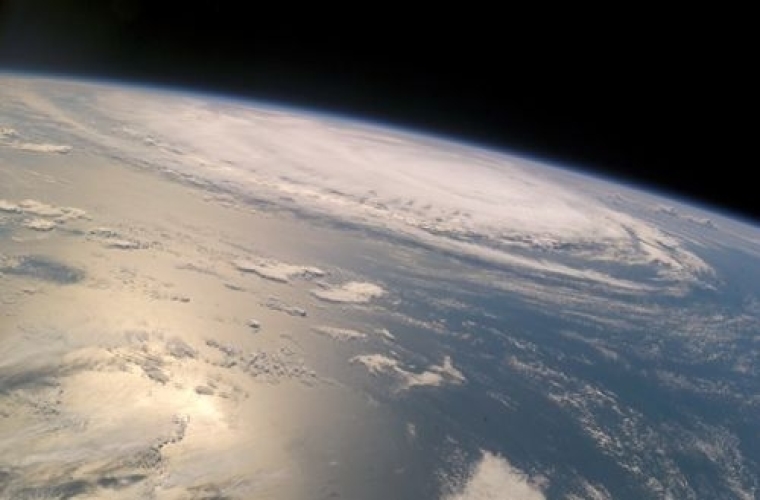
The issue of climate change and more specifically global warming has become increasing prominent in Australia, as a Federal Election is fast approaching. The latest factor to boost this issue into the spotlight was the contrasting position each major party had taken to deal with global warming. The question for Christians is whether this issue should be a consideration in deciding who they vote for?
The Intergovernmental Panel on Climate Change, the UN's leading authority on climate change, in February this year said temperatures have risen by 0.76 degrees Celsius (1.37 Fahrenheit) since the 19th century and it is 'very likely' caused by people, reported Bloomberg.
Reverend John Henderson, the General Secretary of the National Council of Churches in Australia, in response to this issue said, "…We do know that human activity is doing great, and maybe irreparable, damage to our home, the earth."
In the 'Australia's Faith Communities on Climate Change' report published last year, the Australian Baptist Churches said there was 'overwhelming scientific evidence show(ing) that humans have caused much of the global warming occurring today.'
Even though the cause of global warming is hotly contested by both sides, Christians are split as to how to respond to this issue. Some believe that Christians should stay clear of it given that there is 'no consensus on this issue.' However others are urging for immediate action to tackle this problem, saying the failure to do so will 'cause severe consequences.'
In America, a public letter was signed earlier this year by 22 prominent evangelical leaders including James C. Dobson, founder of Focus on the Family, who wrote 'global warming is not a consensus issue.' This letter was supported by E. Calvin Beisner, associate professor of historical theology at Knox Theological Seminary in Florida, who told the New York Times, "that the science is not settled on whether global warming was actually a problem or even that human beings were causing it. The solutions advocated by global warming opponents would only cause the cost of energy to rise, with the burden falling most heavily on the poor."
Supporting their view that the evidences on global warming was mixed, was Cardinal George Pell, the Catholic Archbishop of Sydney, who in a Sunday Telegraph Column in 2007, wrote "The evidence on (global) warming is mixed, often exaggerated…" The cardinal went further describing proponents of global warming as 'zealots' who had painted 'extreme scenarios to frighten us.'
In the same column, he wrote "We have been subjected to a lot of nonsense about climate disasters as some zealots have been painting extreme scenarios to frighten us…Scaremongers have used temperature fluctuations in limited periods and places to misrepresent longer patterns."
However the other side is just as vocal arguing that dealing with global warming is a Christian duty since the stewardship of creation was entrusted to us by the Lord. To some, global warming is an issue of justice where the impact of failing to address it will devastate the poorest in the community.
Rector Reverend George Browning, a Bishop of Canberra and Goulburn and Chair of the Anglican Communion Environmental Network, said that the Christian faith is certainly about salvation, but in addition to that Christianity is 'first and foremost' a concern for the whole of the created order.'
In the report mentioned above, the reverend wrote 'Therefore, if Christians believe in Jesus they must recognize that concern for climate change is not an optional extra but a core matter of faith.'
Rowan Williams, the Archbishop of Canterbury who is the spiritual head of the world-wide Anglican Communion, warned that failure to protect the earth and resolve social injustices would lead to environmental and social collapse.
The Australian Evangelical Alliance (AEA) encouraged Christians to 'mitigate climate change' because they were accountable to God for the impact of their action on the earth.
"Australian Christians are responsible to God for the way their actions affect the world and the lives of other people now and in the future. It is not only governments that should act to mitigate climate change, but also Christians and church communities who serve the Creator and Redeemer of the world and the Lord whose love extends to all people."
The term stewardship was used by the Australian Christian Lobby (ACL) to justify why Christians had a moral duty to be aware of this issue, in the upcoming Federal Election.
"Christians have a moral duty to be stewards of the creation and to express God's love and care to all people made in his image," said Jim Wallace, the Managing Director of ACL. "It is clear that there is a significant problem and Christians will be looking to weigh the degree of determination in each party to tackle it at the next Federal Election."
Finally, some Christians see global warming as an issue of justice where the consequences of it will be felt in the most vulnerable and poorest in the world community.
On its website, TEAR Australia, stated that climate change posed a 'grave' threat to the vulnerable and poor community. Tackling this issue was more than just an environmental issue, TEAR said, it was a matter of justice.
At the heart of the issue, TEAR went on to say, was being responsible stewardship of God's creation.
"Tackling the causes of a changing climate, and minimising the harms, is a matter of justice. It is at the heart of responsible stewardship of God's Creation," said TEAR Australia on its website. "It is also at the core of our call to "defend the rights of the poor and needy."
Regardless, of which side of the debate a Christian choose to take, one thing is for certain, the issue of global warming will continue to be a decisive issue on not just the Federal Election but for the rest of your life.